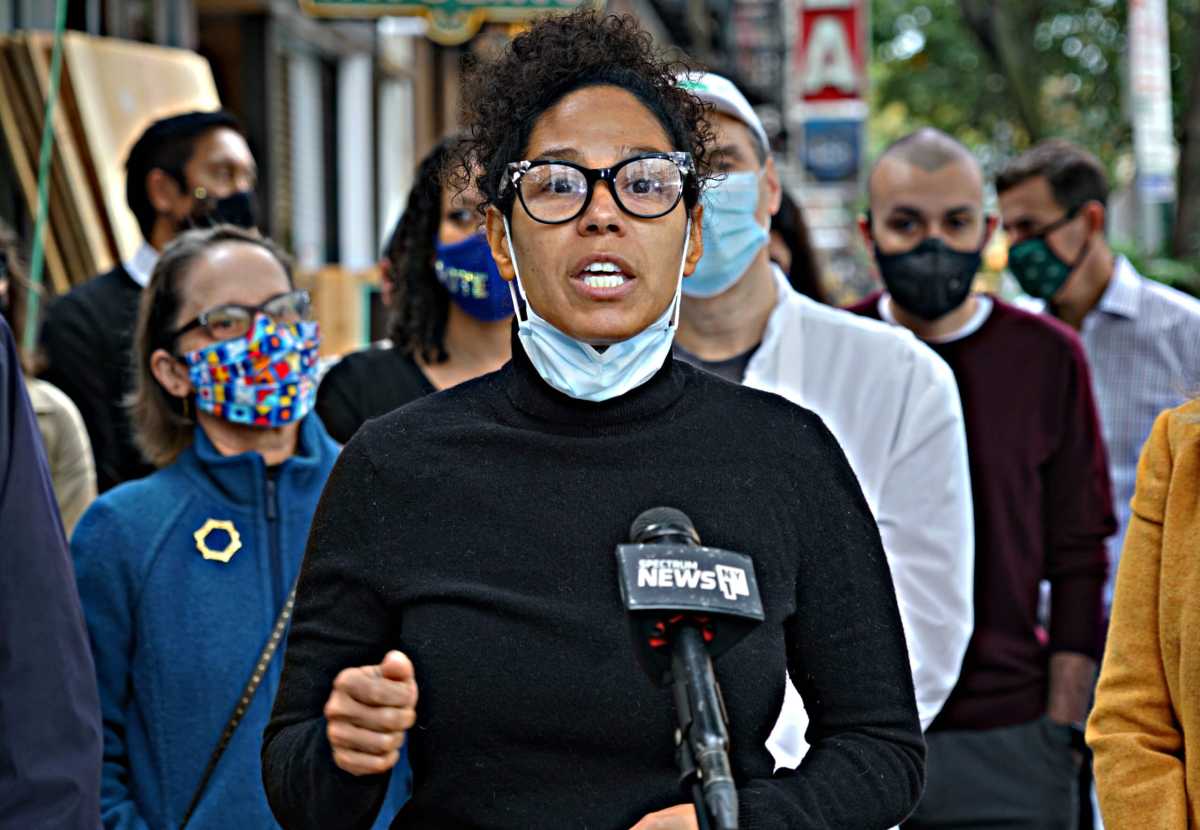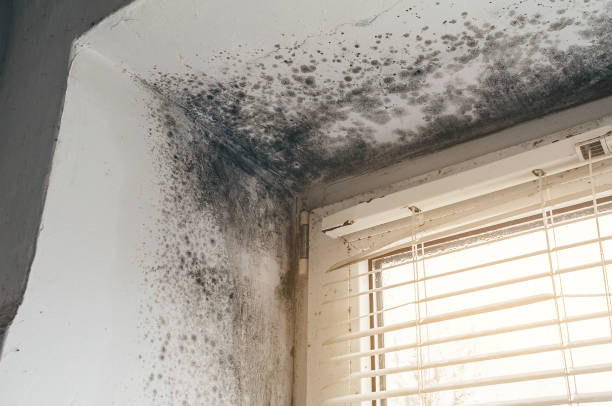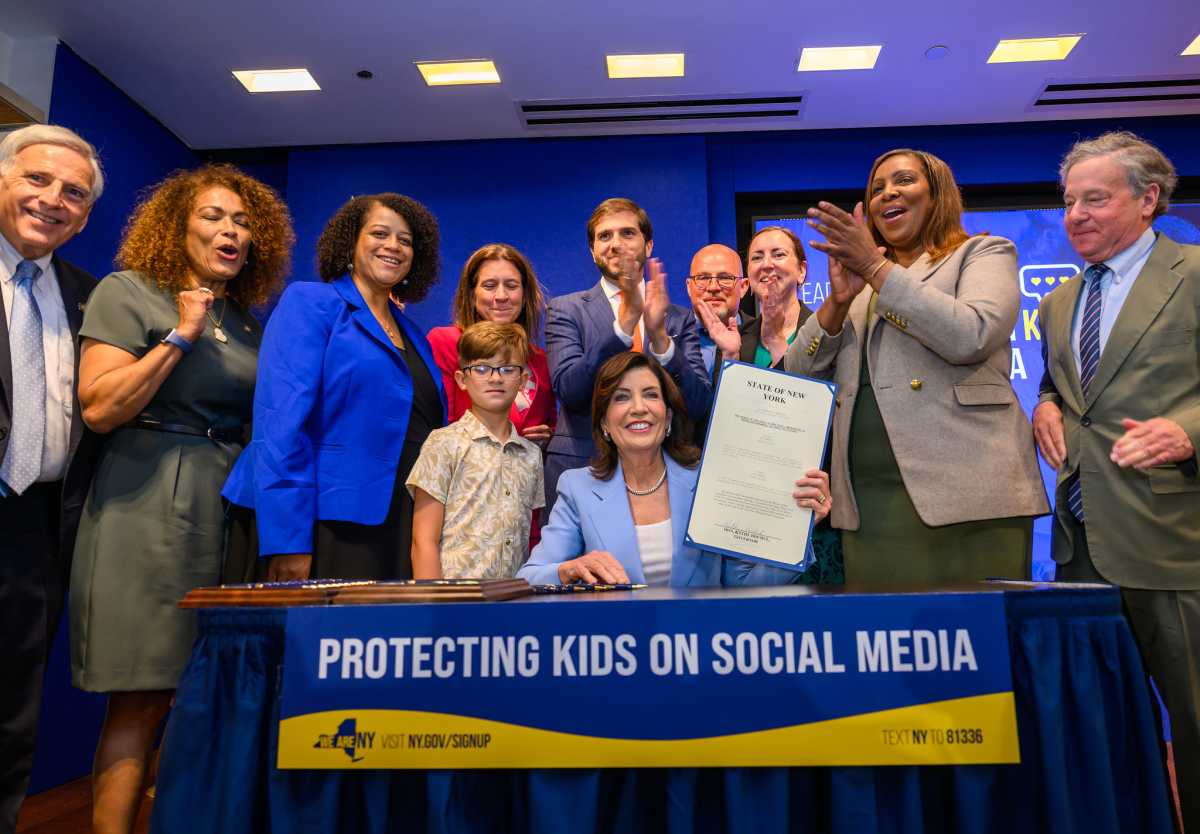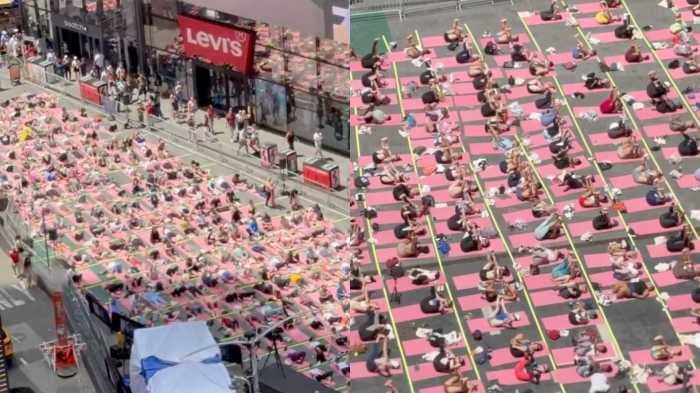BY DEAN MOSES
The newly formed Hell’s Kitchen Neighborhood Coalition (HKNC) assembled at the corner of 9th Avenue and 38th street on Oct. 19 to demand action from the NYPD and Mayor Bill de Blasio following his six-month extension of the temporary hotel shelter program.
Hell’s Kitchen has become a designated homeless shelter zone, where thousands of individuals have been cramped into a few square blocks after so many locations have repudiated their presence. Many residents in the area say they welcome the homeless services but argue this situation has become over-saturated and a danger to all.
“We are a neighborhood that does not say no. We welcome social services. We welcome people who have had difficult times in their lives, but they are not being served and our neighbors are not being served,” said Joe Restuccia, a Hell’s Kitchen Neighborhood Coalition member and executive director of the Clinton Housing Development Company.
HKNC was recently formed to respond to this public safety crisis. The coalition, which is made up of residents and business owners, are calling for action after they claim the homeless hotel guests have been running roughshod over the neighborhood for months, engaging in fistfights and blatant drug consumption.
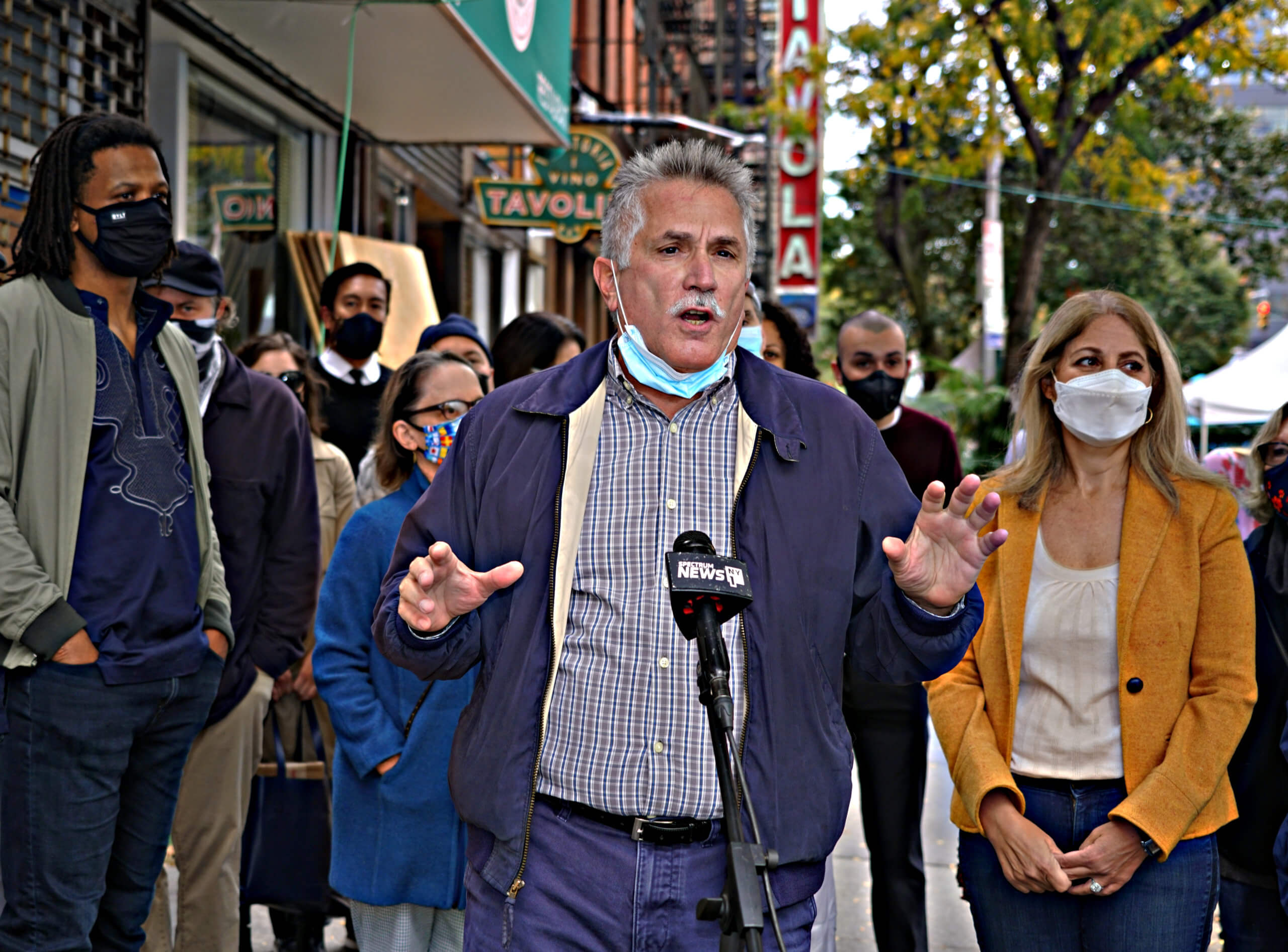
Due to the COVID-19 pandemic, many empty hotels are being used as makeshift shelters in an attempt to control the spread. While New York City now has record-low infection rates, the adverse effect of this program has many local tenants and employees feeling terrified to leave their homes after encountering hordes of their new neighbors, and the carnage left in their wake.
As the meeting commenced, Brian Weber, a member of the coalition and co-chair of the 36-Street block association, weaved between the crowd showcasing a video on his phone, depicting a brawl that had spilled from the lobby of Hotel Central on West 36th Street and into the road.
“It started when the security was in a verbal altercation with a man in front of the shelter, security threw the first punch,” said Weber. “There happened to be police nearby who ran to the scene and broke it up. I see lots of verbal altercations. But what I usually see is drug use out my window. I see men injecting other men—quite honestly, I view most of the world out of my window because it is just not safe to go out on my street. I haven’t used the sidewalk in months. If I have to go out, I walk in traffic.”
Residents say they’re tired of individuals handling and selling illegal substances. Many in the coalition feel that the increased amount of beds in the area are just too large in contrast to the comparatively small community.
Maria Ortiz is a lifelong resident, social worker, and member of HKNC, who has lived in shelters herself. She expressed empathy for the temporary inhabitants but also claimed the situation is a public safety concern.
“On 37th and 36th Street, we have over 800 folks that have high social service needs. On 36th Street, over 500 have already been added there from the 800, and there is already a bed facility there. In Hell’s Kitchen and Chelsea, we already have about 2,300 beds for folks that live in shelters or homeless supportive housing. With the temporary shelter location sites, we have about 1,800-2,000 beds in the community, so there is an over saturation in the community especially on 37th and 36th Street,” Ortiz said.
Like Ortiz, many of the coalition participants believe that instead of offering humane care, Hell’s Kitchen has become a dumping ground where close to 4,000 people are now jam-packed in one location.
“The biggest issue is really how it is impacting the community; it is a safety crisis right now. There are things you can see occurring on the street that you can see on a daily basis. For example, aggressive behavior towards the shelter residents themselves, aggressive behavior towards the permanent residents, towards local business owners, drug use and drug sales,” Ortiz added.
According to statement from HKNC, “Prior to the COVID-19 crisis, there were 1,010 homeless shelter beds and 1,302 homeless supportive housing apartments in Manhattan Community Board 4. Since May, DHS has added another 1,830 shelter beds in the district.”
This crisis has caused an ever-deepening rift between those permanently residing in the area and the temporary guests. The press conference turned hostile when speakers were heckled by homeless individuals in the area.
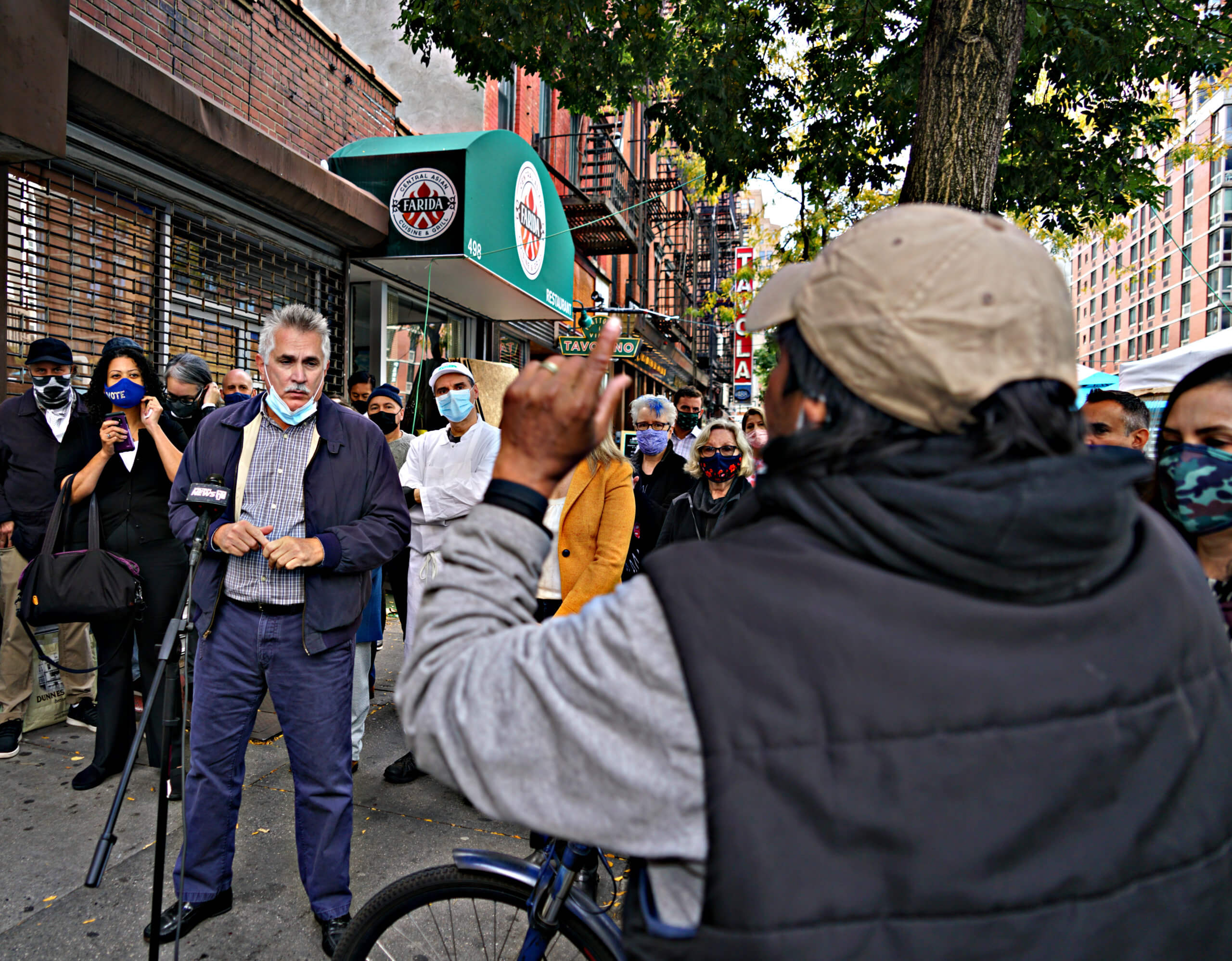
These heated relations are said to have begun nearly six months ago, in May, when homeless New Yorkers were moved into vacant hotels in Hell’s Kitchen and longtime residents observed a change in safety almost overnight.
After six long months of living with drug fueled indulgence and violent encounters, residents said, the proposition of another six months is unbearable.



